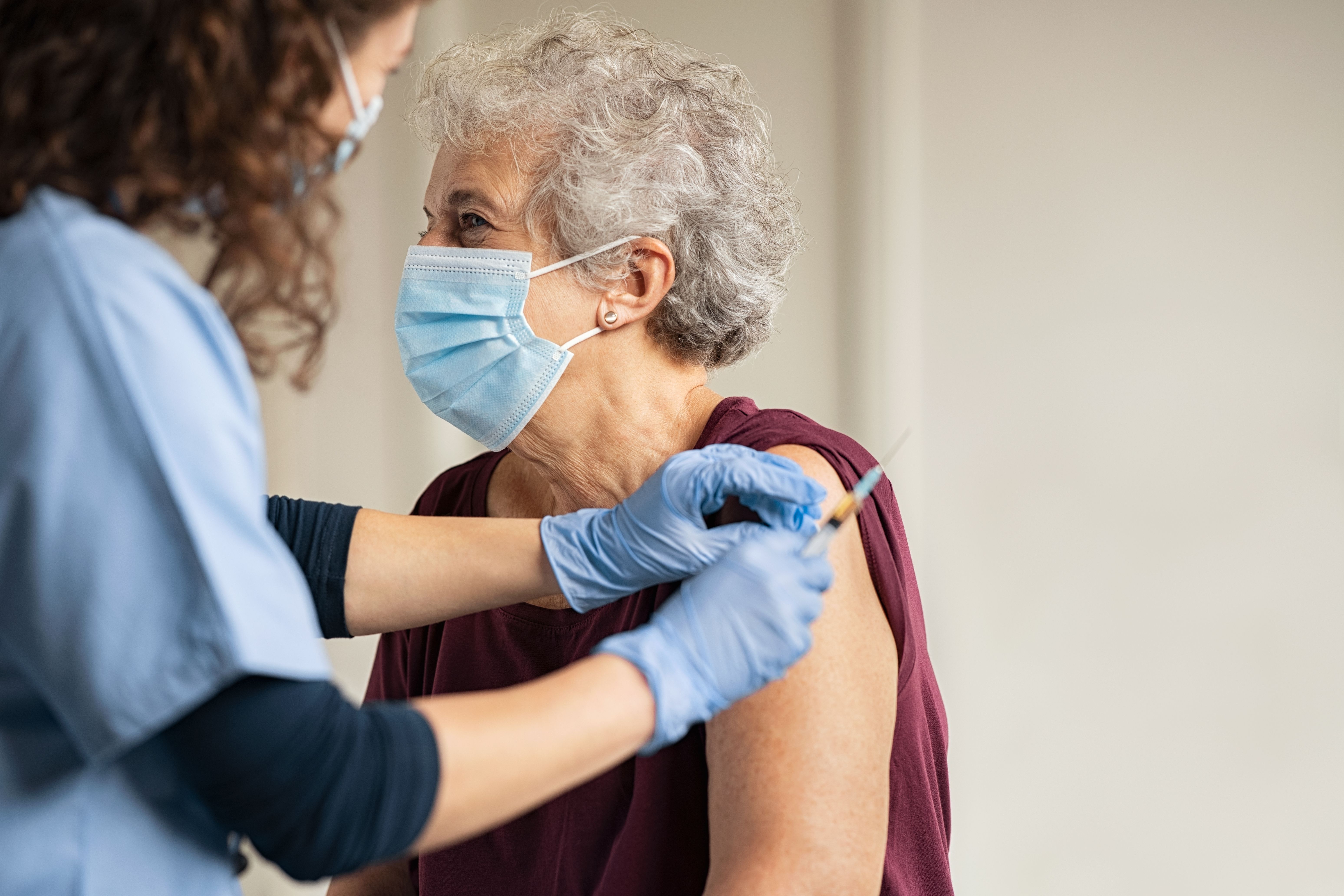Serious cardiovascular events not found in elderly patients 2 weeks after both COVID-19 vaccine doses
There was no increased risk of having a stroke, myocardial infarction, or pulmonary embolism.

Individuals aged 75 years and older did not experience an increased risk of having a stroke, myocardial infarction, or pulmonary embolism during the 14 days after receiving each of the BNT162b2 mRNA vaccine (Pfizer-BioNTech) doses against the COVID-19 virus, reported Marie Joelle Jabagi, PharmD, PhD, from EPI-PHARE, French National Agency for Medicines and Health Products Safety, French National Health Insurance, Saint-Denis, France.
The investigators undertook this short-term nationwide study using the French National Health Data System, which is linked to the national COVID-19 vaccination database, because older individuals were considered to have been underrepresented in the phase 3 clinical trials of this vaccine, Dr. Jabagi explained.
Study participants were eligible for study inclusion if they had been vaccinated or not with the BNT162b2 vaccine, were aged 75 years or older, and were admitted to the hospital between December 15, 2020, and April 30, 2021, as a result of an acute myocardial infarction, hemorrhagic stroke, ischemic stroke, or pulmonary embolism.
Results of database analysis
The study1 found that the almost 4 million individuals who were 75 years and older in the database had received at least 1 dose of the vaccine, and 3.2 million had received the second dose.
During the study period, according to the investigators, the following events were recorded: 11,113 had been hospitalized for an acute myocardial infarction, 17,014 for an ischemic stroke, 4,804 for a hemorrhagic stroke, and 7,221 for pulmonary embolism. The respective percentages of those who had received at least 1 vaccine dose were 58.6%, 54.0%, 42.7%, and 55.3%. The exposure risk interval of 1 through 14 days after both of the 2 vaccine doses also was subdivided into days 1 through 7 and 8 through 14.
A look at the 2-week period after either the first or second vaccine dose indicated that “no significant increased risk was found for any outcome: the [relative incidence] for myocardial infarction for the first dose was 0.97 (95% confidence interval [CI], 0.88-1.06) and for the second dose, 1.04 (95% CI, 0.93-1.16); for ischemic stroke for the first dose, 0.90 (95% CI, 0.84-0.98) and for the second dose, 0.92 (95% CI, 0.84-1.02); for hemorrhagic stroke for the first dose, 0.90 (95% CI, 0.78-1.04) and for the second dose, 0.97 (95% CI, 0.81-1.15); or for pulmonary embolism for the first dose, 0.85 (95% CI, 0.75-0.96) and the second dose, 1.10 (95% CI, 0.95-1.26),” the investigators reported.
They also saw no significant increase in the cardiovascular events during the 2 exposure intervals of 1-7 days and 8-14 days.
The study concluded that this elderly patient population in France had no increase in the incidence of acute myocardial infarction, stroke, and pulmonary embolism during the 14 days after each of the BNT162b2 mRNA vaccine doses.
However, they also noted that more study is needed of younger populations and of other types of vaccines used to prevent SARS-CoV-2
Reference
Jabagi, MJ, Botton J, Bertrand M, et al. Myocardial infarction, stroke, and pulmonary embolism after BNT162b2 mRNA COVID-19 vaccine in people aged 75 years or older. JAMA. Published online November 22, 2021. doi:10.1001/jama.2021.21699